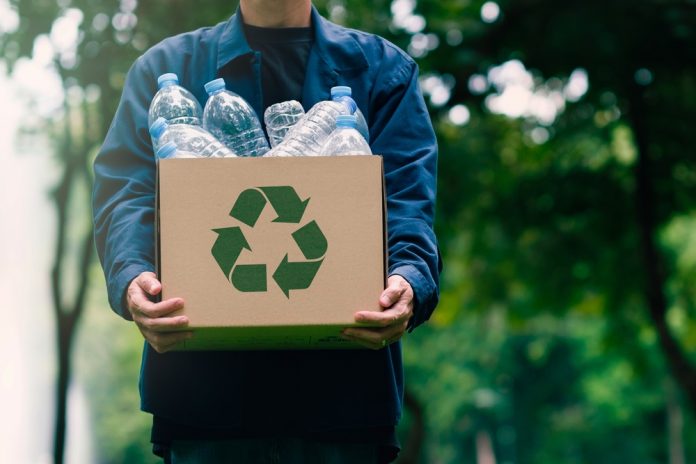A new edition of the British Plastics Federation’s (BPF) Recycling Roadmap has just been released, offering updated insights into the UK’s plastic waste recycling targets and challenges.
The report, developed in collaboration with RECOUP, outlines what the UK needs to achieve by 2035 and the critical changes required to meet ambitious plastic waste recycling goals.
RECOUP’s Sustainability & Circularity Manager Irina Ankudinova explained: “The BPF Recycling Roadmap provides a systemic overview of plastic recycling, highlighting opportunities and challenges in maximising plastic material circularity in the UK.
“The roadmap demonstrates the potential to achieve an ambitious future vision while also drawing attention to the potential negative consequences of inaction.
“We view the roadmap as a valuable tool for promoting collaboration between the government, businesses, and citizens to achieve a plastic recycling system that we all can be proud of.”
Slow progress despite initial roadmap
The report reveals that while the first edition of the roadmap was introduced in 2021, many of the suggested changes have yet to be implemented.
Delays in government policy rollouts and challenging economic conditions are highlighted as major barriers.
The original goal of achieving a 69% plastic recycling rate by 2030, as outlined in the 2021 edition, now faces delays. The BPF stresses that urgent action from the government, industry, and the public is essential to get back on track.
Key areas for improvement in plastic waste recycling
The updated roadmap emphasises the need for more robust government support, particularly to enhance the UK’s recycling infrastructure.
Both mechanical and chemical recycling methods require significant investment. The report shows that the UK’s potential for chemical recycling by 2030 is projected to fall short by 200,000 tonnes compared to previous estimates.
However, with sufficient investment and policy changes – especially around the clarification of mass balance methodology within the Plastic Packaging Tax – 400,000 tonnes of chemically recycled material could be achieved by 2035.
UK’s plastic recycling targets for 2035
Despite setbacks, the BPF’s forecast remains optimistic, suggesting that the UK could still reach a 70% plastic reuse and recycling rate by 2035.
The report estimates that 23% more plastic could be mechanically recycled, while 6% could be chemically recycled, reducing the need for energy recovery.
Moreover, achieving these goals could lead to a 15% reduction in plastic waste being sent to incineration, and 13% of total plastic waste could be reused. This would contribute to reducing carbon emissions by one million tonnes compared to a worst-case scenario.
Key recommendations
To achieve these targets, the BPF identifies three crucial actions:
- Increased investment: The UK needs greater financial support to improve recycling infrastructure.
- Optimising legislation: Clear regulations and enhanced policies are necessary to drive change.
- Better communication: Improved collection systems and public awareness are vital to ensuring that recycling efforts are maximised.
The Recycling Roadmap highlights that significant progress in plastic waste recycling is still achievable, but only with collective effort across all sectors.
BPF Sustainability Manager Helen Jordan added: “The forecasts within the new BPF Recycling Roadmap present milestones that are achievable but also deliberately ambitious.
“The UK could be a leading nation when it comes to the sound management of plastic waste if there is a step change in how we perceive plastic items that have reached the end of their first life.
“We call upon the government to help the UK achieve its true potential as an environmentally conscientious nation with optimised waste management practices.
“We could recycle so much more plastic waste within the UK if improvements to existing systems and legislation create the right atmosphere to increase investment.”





